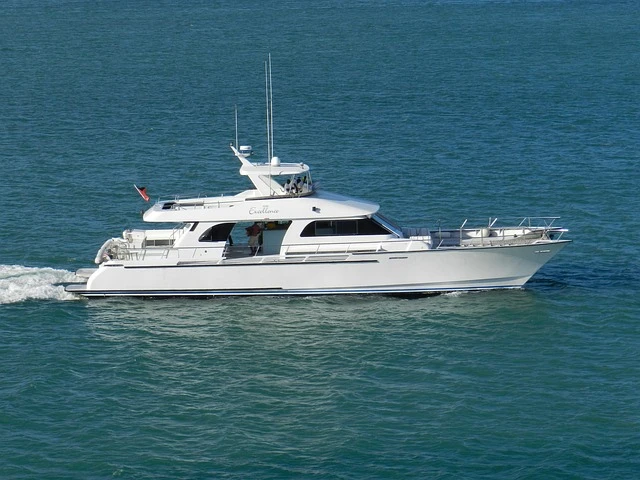23 January 2025
Practical Tips to Save Fuel on Yacht Sailing
The cost of fuel is an expense that cannot be ignored when sailing a yacht. The high cost not only affects the economy of sailing, but may also limit the frequency and duration of sailing. So how can you save on fuel consumption while enjoying the pleasures of the sea? This guide will reveal a series of practical tips to help you save fuel on your yacht while sailing.

Plan your route in advance
In the process of yacht sailing, if you want to save fuel, the first thing you need to do is to plan the sailing route in advance is, through accurate planning, you can clear know the optimal route, effectively avoid those unnecessary detours, so as to minimize the consumption of yacht fuel.
Proper maintenance and upkeep of the yacht
Proper maintenance of your yacht is a key factor in saving fuel. When a yacht's engine is well-maintained and in optimal condition, it runs more efficiently, thus reducing fuel consumption. Maintaining your yacht requires regular checking and changing of the condition of the fuel filters, filters that are too dirty will restrict fuel flow and put more load on the engine, more load on the engine and more fuel consumption. It is also necessary to keep the propeller clean and free of debris attached to it, as a dirty propeller increases drag, causing the engine to consume more power to maintain the required speed, increasing fuel consumption.
In addition to this, it is also very important that the engine is correctly adjusted, and this needs to be done by a professional. Make sure that all the parts of the engine are aligned and in the best working condition. Regular inspections of the yacht's hull are also required to identify problems and solve them in a timely manner to ensure safe and economical sailing of the yacht.
Adjusting the speed of the yacht
The speed at which a yacht is travelling can have a significant impact on fuel consumption, and typically the faster the yacht is travelling, the more fuel it will consume. Most yachts have an optimum speed, usually between 20 and 30 kilometers per hour, at which the engine is most fuel efficient. When this optimum speed is exceeded, the resistance that the yacht experiences when sailing increases, resulting in more power and fuel being used.
It is also crucial to adjust the speed of the yacht to the sea conditions. When sailing against the wind or encountering currents, you need to reduce the sailing speed appropriately so as to save fuel effectively. In downwind conditions, the yacht can realize higher sailing speeds with the help of the wind and without a significant increase in fuel consumption. Therefore, monitoring the speed during the voyage and adjusting the speed of the yacht according to the sea conditions can lead to significant fuel savings.
Using equipment that helps save fuel
There are a number of devices that can save fuel while sailing a yacht. GPS, for example, can reduce fuel consumption by accurately planning more efficient routes and effectively avoiding unnecessary detours. Anemometers and probes can provide data relating to wind speed and water depth, allowing the skipper to adjust sailing strategies based on this data to maximize sailing efficiency. In addition, technical equipment such as engine management modules can be installed on yachts to monitor fuel consumption in real time, allowing the skipper to make timely adjustments. These devices not only save fuel consumption, but also improve sailing efficiency.
Adoption of efficient navigation strategies
Adopting efficient navigation strategies not only reduces fuel consumption but also optimizes your itinerary. When sailing when weather conditions permit, you can save fuel by taking advantage of ocean currents and favorable winds to drastically reduce your dependence on the engine. Constantly adapting your route to the conditions at sea helps the yacht to sail smoothly and efficiently. Modern navigation technology also supports efficient navigation. Monitoring systems and apps, for example, provide optimal sailing conditions and navigation routes in real time.
Analyzing the yacht's fuel consumption
Analyzing your yacht's fuel consumption can also help to save fuel. You need to keep track of fuel consumption when sailing at different speeds and on different routes, so you can get a clear picture of how sailing conditions affect fuel consumption. Another practical method is to calculate the average fuel consumption, which can be obtained by dividing the amount of fuel consumed by the distance travelled. With this average fuel consumption value, you will be able to compare different time periods and different routes to determine which sailing method is the most efficient and saves fuel for yacht sailing.
 Report
ReportNetizen comment
Comments

Leave the comment
Relevant Recommendation
Yacht Guide
Most Recommended




